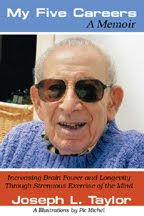
Laurie retired from her job after a long stint as Director of a school for learning disabled children. She felt that she was burned out. Today, Laurie works part time for a group of doctors, evaluating children for learning and psychological problems; she is a docent at the Peabody Essex Museum in Salem MA; at the Audubon Society on the North Shore of Boston she teaches children about the marshes and animal footprints in the snow; and she was in the leadership group for the extensive volunteer program at her son’s high school Jamie, Laurie’s eighteen-year-old son, is a freshman at George Washington University in Washington D.C. As a child actor, and later in high school, he had leading roles in musicals and stage plays, He sings beautifully (Accepela Choir in high school), tap dances and has an appealing presence. He acquired an immediate celebrity status at George Williams, when, during the first week, he was selected in competition with 300 other students as one of three new voices for the Accepela Choir.
In September, during the second week of classes, Jamie developed Swine Flu. Laurie immediately flew to Washington, had her son transferred from his dormitory room to a hotel suite, nursed him, participated with college personnel in arranging his schedule for after his return, did a host of errands related to his illness and his doctor, and five days later -- including a weekend -- Jamie was back in school. He had missed only three days of classes. After a visit to Alexandria, Virginia (across the Potomac River) to explore a crafts fair, Laurie returned home. She resumed her normal activities the next day. No time out for her.
It will not appear in any record of the medical treatment Jamie received, but I have no doubts that Mother Love was a crucial factor in Jamie’s rapid recovery. That, plus Laurie’s competence, organizational skills and poise under stress, enabled Jamie to utilize his personal resources to combat the illness, free of guilt and other distractions. Mother Love does not come in a pill. It is among the most primitive and ancient of human qualities, and no matter what course evolution, including mutations, have taken place, Mother Love has survived, even grown in its importance to child development. But there are mothers who are emotionally cold, even frigid and rejecting of their children. The most extreme case I saw in my work in a child treatment center was a single mother who did not even want to look at her new born child. There must be many such mothers we never know about. A relative took the child and we never learned what happened subsequently. Many years ago it was the custom to prohibit unwed mothers from seeing their child after birth, under the theory that even a fleeting bonding would damage the child and mother. The noted child psychiatrist, Melanie Klein, believed that maternal rejection was a core element in the development of emotional and mental illness in children, and that bonding occurs immediately, much more quickly than had been thought. Jamie was one of the fortunate children who have a mother who loves him deeply.
I have a photograph of Jamie and me, standing side by side, receiving awards for our prize-winning essays in a literary competition, the youngest and the oldest of the writers. Laurie was a Hospice volunteer in our home, visiting twice a week during my wife’s terminal illness in 2005-2006. We have remained good friends, lunch together frequently, and have dinners along with her husband and my adult daughter and son. Sometimes Jamie would join us for dinner in a restaurant. Random events, such as the Hospice assignment of Laurie, simply happen, but our lives become better when we utilize chance to our advantage.
photo courtesy of aussiegall under a CC2.0 license

